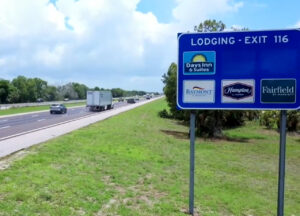The Sanibel-Captiva Conservation Foundation (SCCF) has announced another strong year for bald eagle conservation, with 12 bald eagle chicks successfully fledging from 11 monitored nests across Sanibel, Captiva, North Captiva, and just off-island areas during the 2023–2024 nesting season. This number is on par with last year’s 13 fledged eaglets, signaling ongoing success for local conservation efforts.
Nesting Season Highlights
SCCF monitors eagle activity from October 1 through May 15 each year, partnering with volunteers and local agencies to gather important data. These findings are submitted to the Audubon Society’s EagleWatch Program, which oversees more than 1,200 bald eagle nests statewide with the help of 750 trained volunteers.
“It was another successful season for our bald eagles,” said Audrey Albrecht, SCCF’s Shorebird Biologist.
-
On Sanibel, five nests were monitored, resulting in five fledged eaglets.
-
On Captiva, three nests produced five healthy fledglings.
Conservation in Action
As the islands continue to recover from recent hurricane damage, SCCF collaborates with multiple agencies to ensure eagle nests remain protected, even during construction or restoration projects. Partners include:
-
City of Sanibel
-
Lee County
-
Florida Fish and Wildlife Conservation Commission (FWC)
-
U.S. Fish and Wildlife Service’s Migratory Bird Office
All work near eagle nests is conducted under strict permitting to ensure minimal disturbance.
Community Support and Resources
SCCF credits its success to strong community partnerships:
-
Window to Wildlife provides a live stream through its Captiva Eagle Cam, allowing the public to witness nesting behavior in real-time.
-
The Clinic for the Rehabilitation of Wildlife (CROW) is on call for any sick or injured bald eagles in the region.
“We’re incredibly thankful for our dedicated volunteers and partners who help protect these magnificent birds,” Albrecht added.
Ongoing Threats & Education
While bald eagles are no longer on the federal Endangered Species list, they remain protected under several laws, including:
-
The Florida Eagle Rule
-
The Migratory Bird Treaty Act
-
The Bald and Golden Eagle Protection Act
SCCF also warns that rodenticides (rat poisons) continue to pose a serious threat to eagles and other raptors. Residents and businesses are encouraged to explore wildlife-safe alternatives to rodent control.
Learn more about safe rodent control options (PDF)
For more information or questions about local bald eagles, contact SCCF at eagles@sccf.org.






